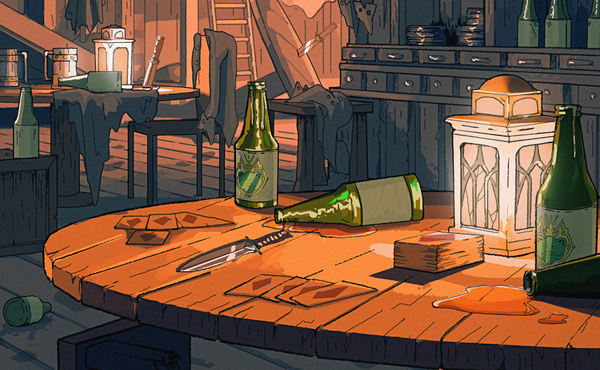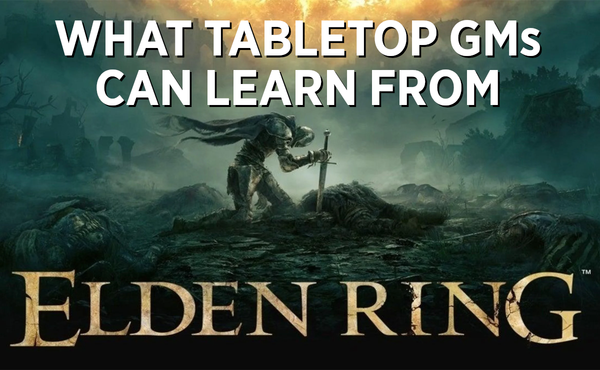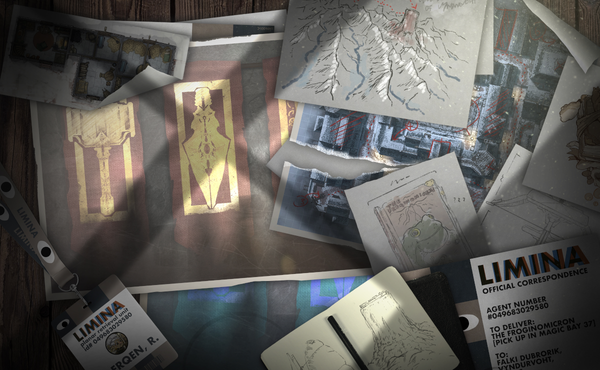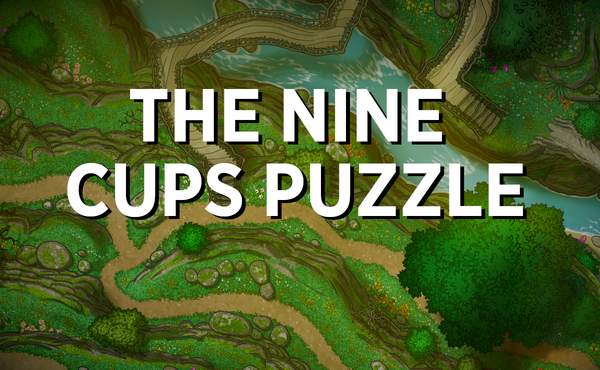Use Weirder Tabletop Music
An unexpected music choice can immediately invigorate a TTRPG encounter and dramatically alter how your players conceptualize the scene.
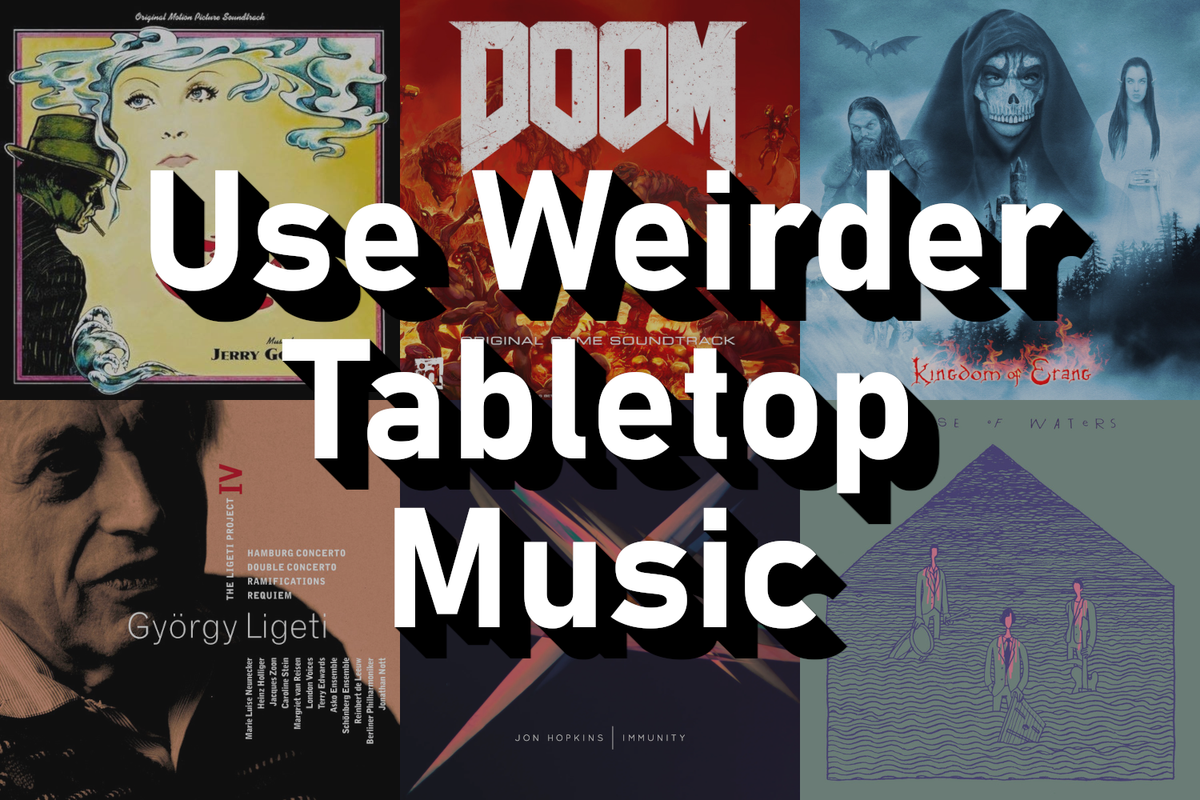
Let’s do a thought experiment. You’re GMing a fantasy tabletop campaign. Your players are getting into the late-game, and they’re starting to face more fearsome foes. The adventurers began their campaign clearing rats in a basement, but the stakes have escalated dramatically. They are now facing hordes of demons and devils in a nightmarish infernal cathedral. Even if you’ve thus far scored the entire campaign with traditional fantasy music, would you ever consider using the soundtrack to Doom (2016)?
It’s a valid question! There are certainly options for scoring demon-slaying adventure that fall more squarely in the realm of “epic fantasy” music. For thematic consistency, you might decide it makes more sense to grab some boss tracks from Dark Souls or some emotive baroque religious music—I do love Bach’s organ repertoire.
However, if you set the tone right with your exposition and mechanics, I am not sure there exists on this earth a collection of music more fitting for fighting fiends than the soundtrack to Doom (2016). It’s not fantasy, it’s not orchestral, and the use of synthesizers seems to fly in the face of your typical D&D-esque aesthetic. But listen to BFG Division and honestly tell me that it wouldn’t get your players insanely amped for some bad-ass hell-aspected combat.
I want to argue in favor of you and your party listening to a broader and weirder array of music at your table. You don’t settle for bland characters, bland settings, or bland encounters. Why settle for a bland rotation of music?
The Lies of Diegesis
“But Will,” you say, “such music does not make sense! It wouldn’t exist in my world!” To that, I have three responses:
- Who says? That is: who says this music doesn’t exist in your world? Have you established every instrument that exists in your setting? Have you established the history of music theory, the evolution of folk rhythms and melodies, and the cross-cultural exchange that informs how different genres have developed? There’s no rule that says just because your world uses medieval or early-renaissance visual aesthetics that all of your in-world composers have to follow “those music theory rules” that IRL (pretty much just white European) composers used in a very narrow stretch of time. Plus, most of the “fantasy music” that you use right now isn’t even remotely accurate to what peoples in real-world Europe would have listened to at any point in history. “Historical accuracy” is simply a nonsensical concept in a fantasy context.
- Who’s even playing the music? When your players are wandering some vast fantastical mountain range, you might decide you need Skyrim-esque music to score the scene, because that’s just what the adventurers would hear. The thing is: that is not diegetic. That’s not “of the world.” I suppose they might find some sheep herder blowing a big horn on a snowy mountaintop, but they would certainly not find a 60-person string orchestra. Aside from a few very specific circumstances (solo harpsichord in a fancy mansion, a small ensemble playing in a tavern, maybe drums and bugles in a battle), the music in your game is not meant to seem diegetic—i.e. the music that you, the in-person DJ, are playing is not meant to be literally audible in-universe. Ipso facto, why limit your options to solely what would make sense in-world?
- Who cares? I mean the sincerely! If the music elevates the emotions, highlights the specific tone of the scene, or simply engages your players, I say do away with sticking to music that is diegetic, thematically consistent, or “safe.” It’s a moot point if the pros of playing unorthodox but engaging music outweighs what you lose by playing music that’s a bit off-theme.
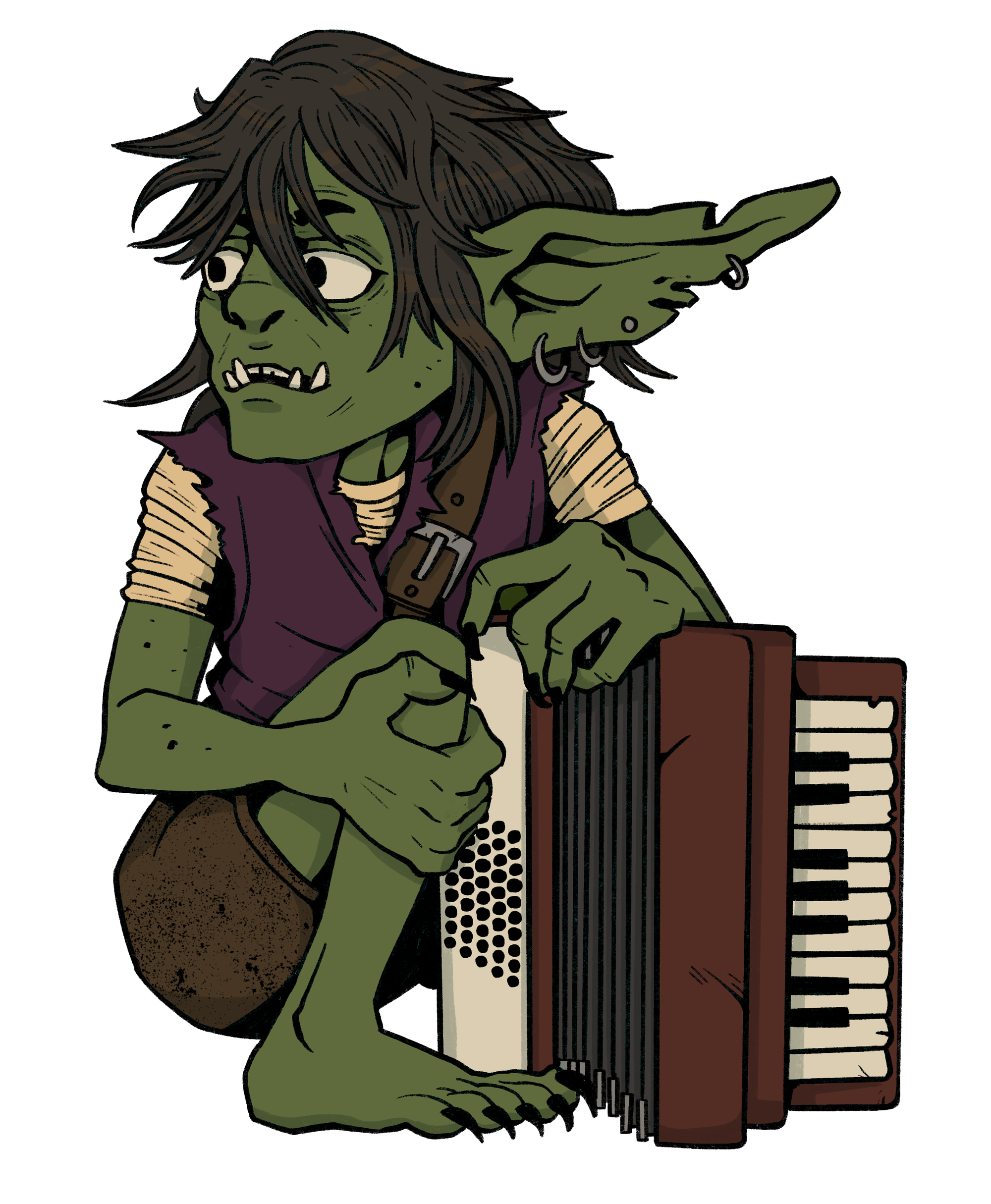
What Makes Music Actually Appropriate?
If we don’t assume that the score for a fantasy game must sound a certain way, how do we decide what it should sound like instead? You probably have some sort of mental flow chart for deciding what music to play when. If the players aren’t fighting anything, put on calm fantasy music. If the players are fighting something, grab some epic fantasy combat music or war drums. If the players are in a dungeon, play something spooky. That’s all well and good, and it’s a totally acceptable flow chart. But does it have to be that simple?
I’ve written before about how best to choose music for your campaign, but I invite you to get more creative with how you define the dominant theme or “point” of an encounter. It’s easy to say “what are the players doing right now?” and then determine what music would play if your campaign were Critical Role, Baldur’s Gate 3, or The Witcher. I’m giving you permission to instead ask “what is this encounter really ABOUT, regardless of the broader fantasy genre conventions?”
Some Examples
If your players are doing some proper sleuthing and investigating in the middle of a mystery arc, even if it’s a traditional medieval fantasy setting, try putting on some moody, contemplative jazz music. Get your players in the head-space of a detective in a mystery or noir story. That might sound insane! Jazz in a fantasy campaign might “break the immersion.” But, again, what you lose in setting-appropriateness might pale in comparison to just how right the sleuthy vibes feel. Check out some of the moody jazz from our setting of Wresyck Junction below.
What if your players are having an out-of-body experience after meditating, communing with a magical artifact, or taking some fantasy hallucinogens? Or what if it’s just your typical “plot dump during a dream sequence”? Standard scoring options might be some impressionist classical music, or maybe something with a twinkling fey vibe. Alternatively, you could dabble in a bit of sci-fi. When I wanted to write “mystical fungal network” music for our setting of Ithivellia, I threw a whole bunch of synthesizers and trippy audio effects into the mix. After all, why should the soundscape of a dreamy realm be beholden to what’s possible in the material world? Synthesizers make sounds that are physically impossible to create with traditional instrumentation; dream sequences produces logic and visuals that would be physically impossible in the real world. Despite breaking genre conventions, there’s sound reasoning here.
Even if you’re reluctant to veer away from standard fantasy music, I think a good rule of thumb is that the further you get from the physical world, the more flexible you can be with music. Deep underwater, impossible dungeon depths, heavens, hells, the astral plane, or alternate dimensions provide perfect opportunities to get experimental with your music choices.
And what about dungeons? I think the default “weirdness” that tabletop DJs are willing to accept for dungeon music is actually much higher than for other locales. For example, string music with strange harmonies, unsettling ambiences, and haunting rhythms with some dissonant crunch all feel acceptable and broadly “within the fantasy canon.” I try to make a huge range of different dungeon-y tracks so that you can score unsettling locales in whatever way makes sense for you.
But what about going further afield? Dungeon synth is often associated with OSR systems, but I think you can establish incredibly eerie moods in any campaign with the right dungeon synth score: I recommend some tunes from Erang’s massive library.
Alternatively, grab some challenging or “inaccessible” music from the classical canon to really evoke shivers: Ligeti’s Requiem is a great place to start!
What Can You Gain?
The downside of sticking to only safe fantasy music (y’know, the same old Skyrim, Lord of the Rings, Pillars of Eternity music) is that your players don’t actually engage with your score. Sometimes that’s good! Immersion is often the result of fully losing yourself in the campaign; the GM’s narration, the in-character banter, the music, the gorgeous battlemap, and maybe even some candles or mood lighting all combine to make the players feel as though they’re really in the game. They might not be consciously considering the music choices, but it all melds into one cohesive whole that doesn’t need to be actively pondered.
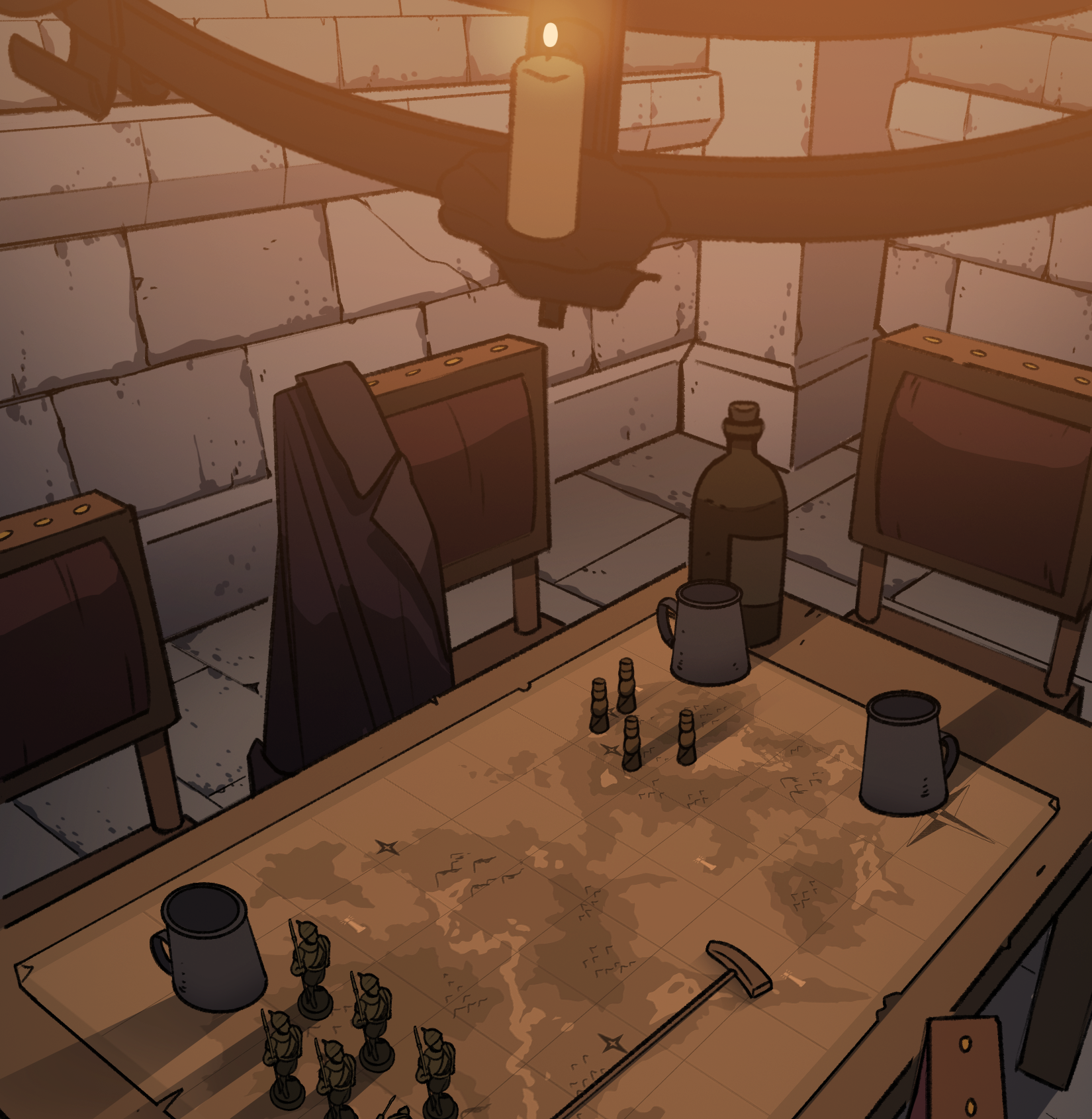
That doesn’t always have to be the goal though. Sometimes it’s better to get your players to notice your choices, to let an unorthodox score guide their roleplaying and elevate the drama, setting, or tone of a scene. If you play the aggressive industrial metal of Doom (2016)’s OST during a fight, do you think your players will be more or less engaged? Will they consider the fight more or less epic? Will they roleplay their characters as more or less bad-ass? I think the answers to these questions are obvious.
Don’t handcuff yourself for no reason. Fantasy should not be safe or humdrum. Challenge your players with some oddball choices for your scores. You don’t need to do it all of the time, but an occasional unexpected music choice can immediately invigorate an encounter and dramatically alter how your players conceptualize the scene.

